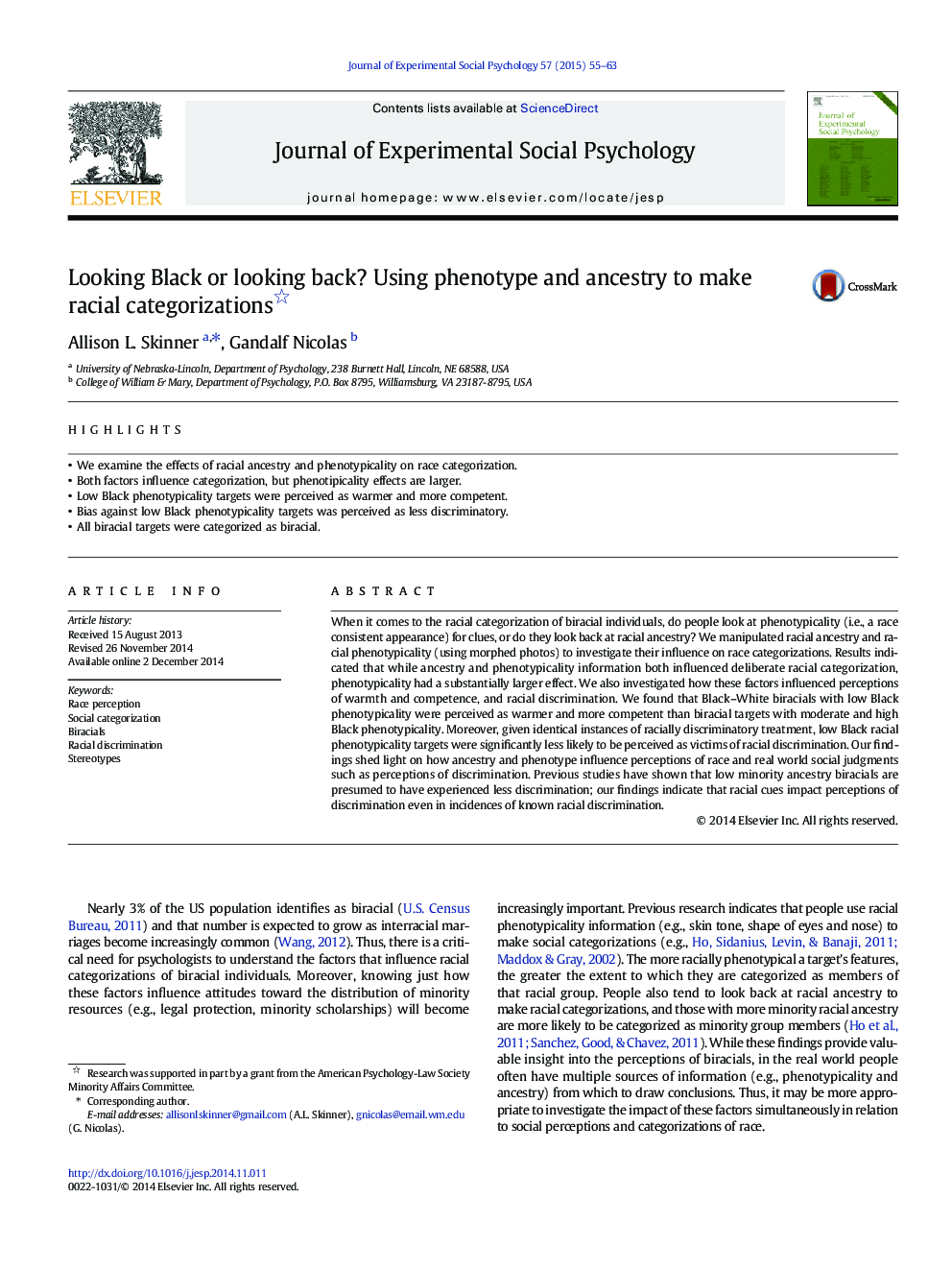| کد مقاله | کد نشریه | سال انتشار | مقاله انگلیسی | نسخه تمام متن |
|---|---|---|---|---|
| 947787 | 1475866 | 2015 | 9 صفحه PDF | دانلود رایگان |
• We examine the effects of racial ancestry and phenotypicality on race categorization.
• Both factors influence categorization, but phenotipicality effects are larger.
• Low Black phenotypicality targets were perceived as warmer and more competent.
• Bias against low Black phenotypicality targets was perceived as less discriminatory.
• All biracial targets were categorized as biracial.
When it comes to the racial categorization of biracial individuals, do people look at phenotypicality (i.e., a race consistent appearance) for clues, or do they look back at racial ancestry? We manipulated racial ancestry and racial phenotypicality (using morphed photos) to investigate their influence on race categorizations. Results indicated that while ancestry and phenotypicality information both influenced deliberate racial categorization, phenotypicality had a substantially larger effect. We also investigated how these factors influenced perceptions of warmth and competence, and racial discrimination. We found that Black–White biracials with low Black phenotypicality were perceived as warmer and more competent than biracial targets with moderate and high Black phenotypicality. Moreover, given identical instances of racially discriminatory treatment, low Black racial phenotypicality targets were significantly less likely to be perceived as victims of racial discrimination. Our findings shed light on how ancestry and phenotype influence perceptions of race and real world social judgments such as perceptions of discrimination. Previous studies have shown that low minority ancestry biracials are presumed to have experienced less discrimination; our findings indicate that racial cues impact perceptions of discrimination even in incidences of known racial discrimination.
Journal: Journal of Experimental Social Psychology - Volume 57, March 2015, Pages 55–63
